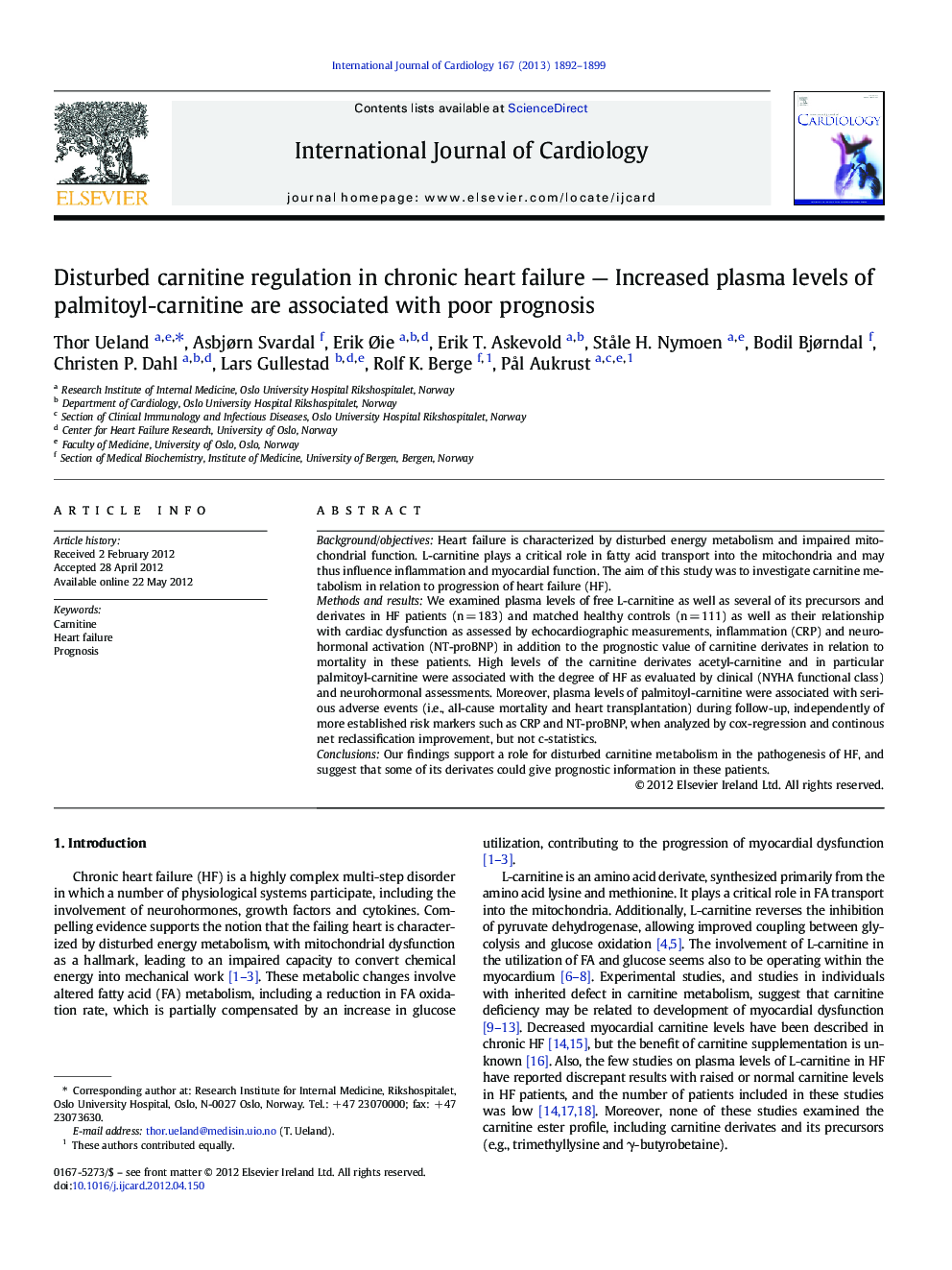| Article ID | Journal | Published Year | Pages | File Type |
|---|---|---|---|---|
| 5977138 | International Journal of Cardiology | 2013 | 8 Pages |
Background/objectivesHeart failure is characterized by disturbed energy metabolism and impaired mitochondrial function. L-carnitine plays a critical role in fatty acid transport into the mitochondria and may thus influence inflammation and myocardial function. The aim of this study was to investigate carnitine metabolism in relation to progression of heart failure (HF).Methods and resultsWe examined plasma levels of free L-carnitine as well as several of its precursors and derivates in HF patients (n = 183) and matched healthy controls (n = 111) as well as their relationship with cardiac dysfunction as assessed by echocardiographic measurements, inflammation (CRP) and neurohormonal activation (NT-proBNP) in addition to the prognostic value of carnitine derivates in relation to mortality in these patients. High levels of the carnitine derivates acetyl-carnitine and in particular palmitoyl-carnitine were associated with the degree of HF as evaluated by clinical (NYHA functional class) and neurohormonal assessments. Moreover, plasma levels of palmitoyl-carnitine were associated with serious adverse events (i.e., all-cause mortality and heart transplantation) during follow-up, independently of more established risk markers such as CRP and NT-proBNP, when analyzed by cox-regression and continous net reclassification improvement, but not c-statistics.ConclusionsOur findings support a role for disturbed carnitine metabolism in the pathogenesis of HF, and suggest that some of its derivates could give prognostic information in these patients.
